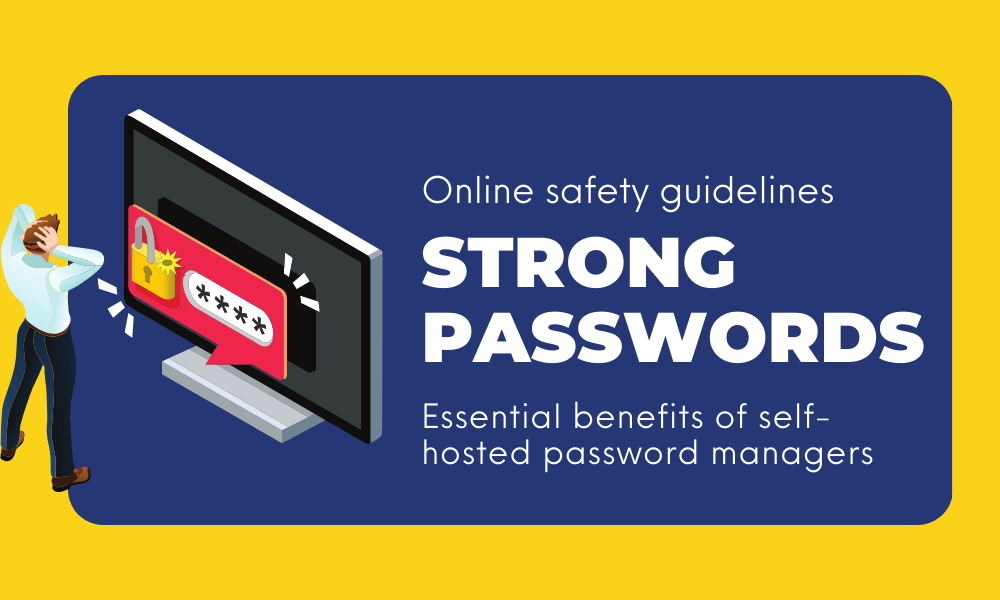In today’s digital age, businesses are more vulnerable than ever to cyber threats. One of the most critical aspects of cybersecurity is password management, and organizations are often left with two options: cloud-based or self hosted password managers. While cloud-based solutions offer convenience, they come with certain risks, especially concerning data security. In contrast, self-hosted password managers, like Passwork, provide enhanced control and protection. This article explores the essential benefits of self-hosted password managers, focusing on their advantages for businesses.
Why self-hosted password managers are more secure
When it comes to securing sensitive information, a self-hosted password manager offers significantly greater security compared to cloud-based alternatives. By hosting the password manager on your own infrastructure, your company retains full control over where and how data is stored. This removes the risk of third-party breaches and ensures that passwords never leave your network.
Data control and sovereignty
With cloud-based password managers, your data is stored on external servers, meaning you must rely on the cloud provider’s security practices. This introduces a risk because cloud providers are often prime targets for cyberattacks. Self-hosted solutions, on the other hand, allow your business to maintain data sovereignty, as all sensitive information remains within your company’s infrastructure. This is especially beneficial for companies operating in regions with strict data privacy regulations, such as the European Union, where GDPR (General Data Protection Regulation) mandates a high level of control over personal and corporate data.
Maintaining data sovereignty also allows your organization to define specific security policies according to your internal standards. Whether it’s restricting access to sensitive data based on user roles or creating tailored encryption protocols, self-hosted password managers provide you with a degree of flexibility and control that cloud-based solutions cannot match.
Enhanced security and customization options
A key advantage of self-hosted password managers is the ability to customize the solution to meet your specific security needs. Passwork, for example, offers highly granular user permissions, allowing administrators to dictate which employees can access specific password vaults. This ensures that only authorized personnel can access critical information, reducing the risk of internal breaches.
Advanced encryption protocols
Passwork employs state-of-the-art encryption standards to protect data. By utilizing advanced encryption protocols such as AES-256, businesses can be confident that their passwords are safe from unauthorized access. The encryption process occurs locally within your company’s network, further minimizing the risk of external threats. Because all data is encrypted before it is even stored, the risk of interception during transmission is eliminated, further protecting sensitive information. In addition, encryption keys are stored on your servers, ensuring that only your organization controls the decryption process.
User activity monitoring and auditing
Self-hosted password managers like Passwork provide comprehensive user activity monitoring features. This is crucial for organizations that need to keep track of who accessed which passwords and when. Detailed audit logs help administrators monitor potential security risks and take immediate action if any suspicious activity is detected. These auditing features are essential for companies that must comply with industry regulations such as HIPAA (Health Insurance Portability and Accountability Act) and PCI DSS (Payment Card Industry Data Security Standard), which require strict monitoring of access to sensitive data.
In regulated industries, being able to quickly generate reports on user activities within the password manager helps maintain transparency and facilitates compliance with regular audits and security assessments. Having such robust monitoring capabilities reduces the likelihood of insider threats going unnoticed and ensures that even if a breach occurs, it can be quickly traced and contained.
Protection against external breaches
One of the biggest risks with cloud-based password managers is the threat of external data breaches. No matter how secure a cloud provider claims to be, centralized storage solutions are prime targets for cybercriminals. By contrast, self-hosted password managers keep your data inside your organization’s internal infrastructure, dramatically reducing the chances of exposure to hackers. With Passwork, all sensitive information remains on your servers, adding an additional layer of security.
Better defense against insider threats
Self-hosted password managers not only defend against external threats but also provide robust protection against insider risks. With customizable permissions and detailed audit trails, businesses can ensure that employees only access the data they are authorized to see. This mitigates the risk of malicious insiders and accidental data exposure. In organizations where multiple teams need access to different types of information, the ability to assign specific access permissions based on user roles is invaluable for maintaining security without compromising operational efficiency.
Compliance and regulatory adherence
Many industries, such as healthcare, finance, and government, require strict adherence to regulatory frameworks. Self-hosted password managers make it easier for organizations to comply with these requirements, as they give companies full control over the storage and management of sensitive information.
Easier compliance with GDPR, HIPAA, and more
Passwork’s self-hosting capabilities allow businesses to store data within specific jurisdictions, ensuring compliance with local regulations such as GDPR and HIPAA. This is particularly important for multinational organizations that operate in regions with varying data protection laws. In addition to adhering to external regulatory requirements, organizations can also define their internal security policies more rigorously by controlling where and how data is stored, who can access it, and how it is protected from threats.
Conclusion
Self-hosted password managers like Passwork offer businesses unparalleled control, security, and flexibility. By keeping sensitive data within your organization’s infrastructure, you can reduce the risk of external breaches, comply with industry regulations, and customize the solution to your specific needs. In a world where data security is paramount, investing in a self-hosted password manager is a crucial step toward safeguarding your business. Ready to take control of your password security? Explore Passwork’s self-hosted solution today.




Leave A Comment
You must be logged in to post a comment.